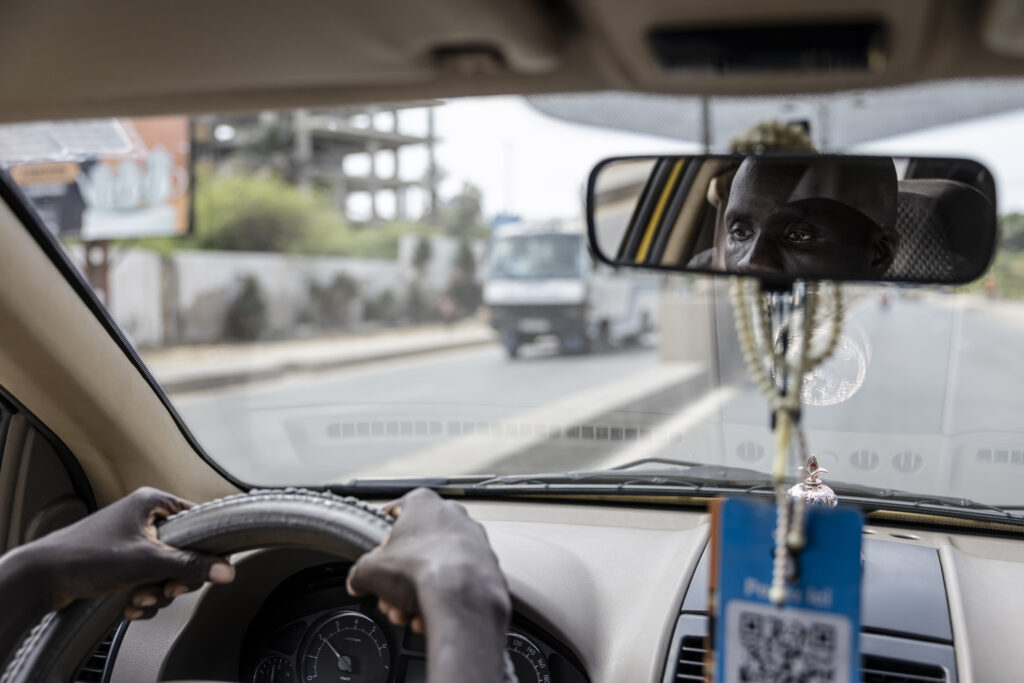Mouhamadou Bamba tried to remain calm on a recent evening while stuck in traffic on Dakar’s famed oceanside highway, the Corniche, which becomes clogged with smog-belching taxis and other vehicles every rush hour.The 43-year-old glanced at the Yango ride-hailing app on his phone, noting that his customer’s destination was still far away.Two months ago, the civil engineer, like thousands of others in the west African country, became a driver on the platform, which works similarly to Uber.For many like Bamba in the construction industry, the decision to pivot to Yango came after building projects stalled, a common fate in Senegal where urban development is rampant but plans easily falter even after they have begun.Since Senegal’s President Bassirou Diomaye Faye and Prime Minister Ousmane Sonko came to power in 2024, the government in particular has halted much of the construction, both public and private.Along the Corniche, piles of rubble mar the ocean view, remnants of an urban development project that was supposed to beautify about 10 kilometres (six miles) of road.Officially, the government maintains that it wants to “review land allocation procedures and combat coastal land grabs”.Just outside Dakar, the city of Diamniadio was supposed to relieve crowding and congestion in the capital, with the previous administration touting the hub as a major accomplishment — but construction on public buildings there has also come to a standstill.As sites similarly stalled across the country, thousands of workers find themselves unemployed. With an estimated 11 million of Senegal’s 18 million residents under the age of 34, people are entering the workforce under fierce competition.The flailing construction and multitude of young workers have helped platforms like Yango achieve spectacular growth.Drivers for Yango, which launched in Senegal at the end of 2021 in the cities of Dakar, Thies and Mbour, “number in the tens of thousands”, Sabine Djokoto-Ayite, the platform’s public relations manager for French-speaking Africa, told AFP.”Since our launch, the number of partner drivers has increased approximately fourfold, demonstrating a continued enthusiasm for the opportunities offered by Yango,” she said. “A large portion” of the drivers are in the 20-to-40 age range, she added.- ‘Already experienced workers’ -Bamba is bitter about the gloomy situation in the construction sector. He switched to driving after work as a foreman on a two-storey building came to a halt in Dakar’s posh Almadies neighbourhood.”I was the project manager,” the father of two told AFP, lamenting the loss of the excellent salary.Today he earns between 30,000 and 50,000 CFA francs ($53 and $88) per day — still a high sum in a country where the average monthly salary is just 96,206 CFA.The trade union at the Consortium of Enterprises (CDE), a major buildings and public works company in Senegal and other countries, held a press briefing in September to raise awareness about the construction sector crisis.”As early as 2023, we began to see wage arrears and since 2024 we’re now four to five months behind,” said Souleymane Abdoulaye Demba, a union representative and inventory manager at CDE.”In 2023, the Consortium still employed 2,500 workers… Today, we’re down to 1,000,” added Amath Diop, another union representative.Tamba Danfakha, president of the Employment Priority political coalition in Senegal, noted that a pivot to ride-hailing “is not a solution to unemployment, but rather a simple change of activity for already experienced workers”.- Taxi backlash -Malick, a 39-year-old who asked to use a pseudonym so that his employer doesn’t find out about his second job, hopes his moonlighting days on Yango will be brief, even if the gig “pays quite well”.The father of two acquired his construction expertise working alongside his European boss. Out of loyalty, he refuses to leave the company despite a major slowdown.While waiting for better times, he drives for Yango only at night, hoping to avoid colleagues or acquaintances who might tell his employer.Adding fuel to the fire, the country’s traditional yellow taxi drivers have protested against “unfair competition” from ride-hailing platforms since January.”Most of the drivers operate without the required paperwork for urban transportation,” taxi spokesman Modou Seck told AFP in an interview.He said he has seen Yango drivers working without mandatory documents such as operating licences, insurance, technical inspection stamps and professional licences.Ignoring the taxi drivers’ anger and resigning themselves to the construction sector slowdown, Malick, Bamba and thousands of other Yango drivers carry onward.
